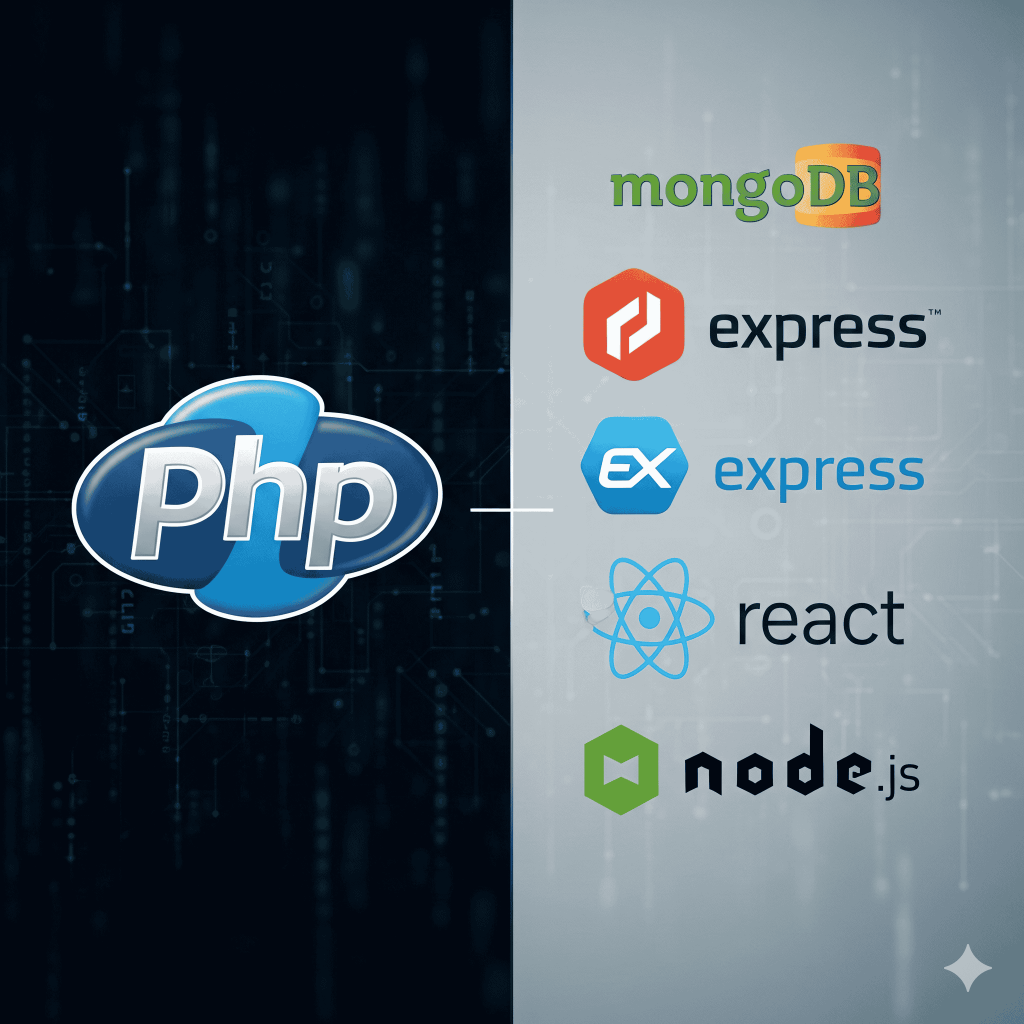Introduction
Choosing the right technology stack is one of the most important decisions when building a scalable web application. Two popular options are PHP (a long-standing server-side language) and the MERN stack (MongoDB, Express, React, Node.js).
Both have strengths, but the right choice depends on performance, scalability, cost, and business goals. In this post, we’ll compare PHP vs MERN so you can decide which is best for your next project.
1. Overview of PHP
PHP is a server-side scripting language widely used for building dynamic websites and applications. Popular frameworks include Laravel, CodeIgniter, and Symfony.
Pros of PHP:
- Mature ecosystem with huge community support.
- Excellent for small to medium projects.
- Cost-effective hosting and development.
- Works well with relational databases like MySQL.
Cons of PHP:
- Limited performance for high-concurrency apps.
- Scaling large applications can be complex.
- Mostly backend-focused (frontend requires separate frameworks).
2. Overview of MERN Stack
The MERN stack combines MongoDB, Express.js, React, and Node.js, offering a full JavaScript-based development environment.
Pros of MERN:
- Single language (JavaScript) across backend & frontend.
- Excellent for real-time, high-performance apps.
- React enables fast, interactive UIs.
- MongoDB offers flexible, scalable NoSQL database management.
- Ideal for cloud-native and microservices architecture.
Cons of MERN:
- Higher learning curve for beginners.
- Requires experienced developers for complex projects.
- Hosting costs may be higher compared to PHP.
3. Performance & Scalability
- PHP: Performs well for content-driven apps but struggles with real-time, high-traffic loads.
- MERN: Handles concurrency better, making it ideal for real-time applications (chat apps, dashboards, SaaS).
4. Development Speed
- PHP: Rapid development with frameworks like Laravel and WordPress.
- MERN: Faster for building modern, scalable apps with reusable components, but initial setup can take longer.
5. Cost Considerations
- PHP: Lower initial cost, widely available developers.
- MERN: Slightly higher development costs, but better ROI for long-term scalable apps.
6. Use Cases
- PHP Best For:
- Content-driven websites (blogs, CMS).
- Small to medium e-commerce stores.
- Projects with limited budgets.
- MERN Best For:
- Large-scale SaaS applications.
- Real-time apps (chat, live dashboards).
- Applications requiring scalability and flexibility.
7. Future Outlook
- PHP continues to dominate CMS (WordPress powers 40%+ of the web).
- MERN is the go-to stack for modern, scalable web apps in 2025 and beyond.
Conclusion
Both PHP and MERN have their place in web development.
- Choose PHP for quick, cost-effective projects that don’t require massive scalability.
- Choose MERN if you’re building a modern, scalable, and performance-focused application that needs to grow with your business.
👉 At Redirect India, we specialize in PHP to MERN migration and can help modernize your existing PHP applications for better performance, scalability, and future readiness. Contact us today!
